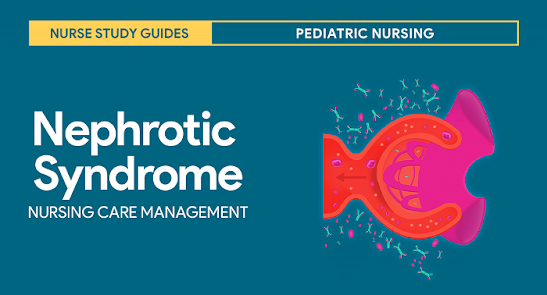Can Ayurveda Cure Nephrotic Syndrome Completely?
Nephrotic syndrome is a kidney disease in which your body excretes a lot of unnecessary protein in your urine. This most often occurs when the tiny blood vessels that help filter waste and excess water from the blood become damaged.
Losing too much protein in the urine leads to a lack of protein in the body, and increases cholesterol and fat in the body.
The kidney consists of a million nephrons and has a glomerulus that functions as the filtering part of the kidney. This part of the kidney is responsible for removing unnecessary wastes from the blood and also helps maintain essential nutrients in the blood. When the kidneys are damaged, they lose their ability to store essential nutrients, and therefore the necessary nutrients, especially protein, begin to leak into the urine.
Nephrotic syndrome is often seen in young children. But adults can also be affected. This kidney disease mainly occurs in children between the ages of 2 and 6 years. When it comes to treating nephrotic syndrome, ayurvedic medicine for nephrotic syndrome can offer better treatment than conventional treatment methods.
Symptoms of Nephrotic Syndrome
Nephrotic syndrome can cause several symptoms, which mainly appear as-Protein loss-
When it comes to protein loss, the most common sign of Nephrotic syndrome is foamy urine. Glomeruli help keep protein in the bloodstream. If they are damaged, the protein passes into the urine. Glomerular damage releases more than 3 grams of protein in the urine in 24 hours.
Body swelling-
Patients may notice swelling in various parts of the body, especially under the eyes, hands, and feet. Ignoring these signs can be dangerous and life-threatening.
High cholesterol levels-
When protein leaks out in the urine, protein levels in the blood drop. The liver produces protein to compensate for low levels of protein in the blood. At the same time, the liver produces more cholesterol. Children may also need Ayurvedic kidney treatment to lower their cholesterol levels with medication.
Low protein in the blood-
When excess protein is excreted in the urine, you end up with low blood protein levels, which is problematic.
What Can Lead to the Development of Nephrotic Syndrome?
Nephrotic syndrome is not just a disease, but a group of complications caused by damage to the glomeruli’s clusters.
The job of the kidneys is to clean the blood and keep it free of waste, toxins, and unnecessary fluids. Kidneys with healthy glomeruli store albumin which is needed in the blood to maintain electrolyte levels in the blood. Certain conditions or factors are responsible for nephrotic syndrome because they directly or indirectly affect the glomeruli. These factors are-
- Minimal Change Disease.
- Diabetes.
- Amyloidosis.
- Membranous nephropathy.
- Blood clot in the renal vein.
It is not appropriate to consider dietary changes or medication for this kidney disease. About 90% of patients with nephrotic syndrome are children and there is no clear reason for this.
Protein is the main building block of our body and a lack of protein interferes with a child's growth. Nerve cells are affected by this kidney disease and can become inflamed. Nephrotic syndrome ayurvedic treatment is an effective treatment for eliminating symptoms with the use of pure ayurvedic herbs.
How to Diagnose Nephrotic Syndrome
In patients with inflammation in the body, the first goal is the diagnosis of nephrotic syndrome. It can be diagnosed with several laboratory tests. Some of the tests for the nephrotic syndrome are:
Urinalysis or Urine test-
Excess protein in the urine is the most important sign that can help diagnose the nephrotic syndrome. If your urine is more foamy, a urine sample collected over 24 hours is sent to a laboratory to determine the presence of protein in the urine. Urinalysis is very important in diagnosing nephrotic syndrome because it helps determine high levels of protein in the urine.
Blood test-
A blood test is done to check your hemoglobin level, white blood cell count, and protein levels in your blood.
What is Nephrotic Syndrome Treatment in Ayurveda?
There is no cure for nephropathy in conventional treatment methods. However, it can reduce, but not completely eliminate, urinary protein loss and other complications. When it comes to Ayurveda, it has a specific remedy for nephrotic syndrome and can cure this kidney disease permanently.
Ayurveda originated in India and is an ancient practice of treating health problems from the roots up to provide lasting relief. In the case of nephrotic syndrome, this holistic system of treatment is based on three basic rules-
- A healthy daily routine, also called Dincharya.
- Personalized and nutritious diet.
- Use of herbal remedies and ancient therapies.
Kidney treatment in ayurveda mainly used natural herbs and ancient therapies that provided kidney rejuvenation, thereby restoring damaged kidneys and making them healthy again. Kidney friendly diet, some other lifestyle changes, and some yoga asanas also help in Ayurvedic treatment for nephrotic syndrome, thus providing a permanent cure.
Ultimately, Nephrotic syndrome ayurvedic treatment restores your damaged glomeruli, allowing the kidneys to function properly again. So they begin to perform their natural functions independently. The best thing about this ayurvedic treatment is that it permanently relieves nephrotic syndrome without endangering your health. So it can be said that Ayurveda can cure Nephrotic Syndrome completely without any side effects or risks.












Comments
Post a Comment